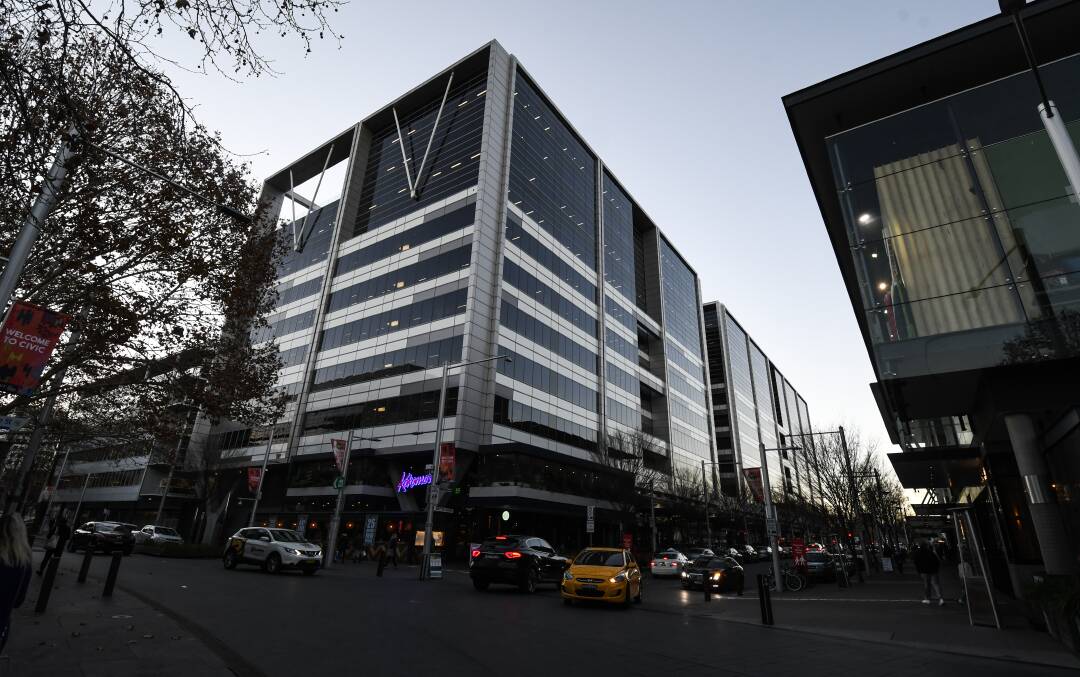Canberra has posted the largest decline in office occupancy last month, while the return to the office in other parts of the country remained steady, a new survey has found.
Occupancy rates across Canberra offices fell to 53 per cent in June, down from 60 per cent in May, the Property Council survey showed.
Melbourne, Sydney, Brisbane and Adelaide had steady occupancy rates in June. Melbourne and Sydney have 49 and 55 per cent of offices occupied respectively, while 71 per cent of offices in the Adelaide central business district are occupied.
Perth was the only central business district to report an increase in office occupancy between May and June, rising slightly from 63 to 65 per cent.
Canberra's occupancy rate has recovered after it fell to 8 per cent in August, when the city was put into lockdown, and a further fall to 7 per cent in January at the peak of the first Omicron wave.
The drop off in occupancy in June is the first fall after steady increases since the January low.
The survey result comes after health authorities in the ACT have again encouraged people to work from home where possible, which is likely to encourage more people to return to working from home in the colder months.
Chief Health Officer Dr Kerryn Coleman advised earlier this week that people who could work from home should work from home, ahead of an expected jump in the number of COVID infections driven by new subvariants.
"If it's possible for you to work from home do this," Dr Coleman said.
Property Council chief executive Ken Morrison said the figures were likely reflecting people being forced to stay at home rather than not wanting to come into the office.
"Although office occupancy rates have steadily recovered since the beginning of the year, this month there was a clear pause in workers heading to the office," Mr Morrison said.
Mr Morrison said the continued spread of COVID-19 and other seasonal illnesses, wet weather on the east coast and industrial action in NSW had made it harder for workers to get into their central business district offices.
The survey, conducted in the field on behalf of the Property Council between June 23 and 30, also found the preference for flexibility was a major driver of occupancy levels.
Almost 80 per cent of respondents said they believed it would take three months or more for occupancy levels to significantly increase, up from 63 per cent in May.
Meanwhile, the public service commission has urged agency bosses to be flexible and consider worker safety in responding to COVID, as new figures reveal thousands of cases are hitting federal workplaces.
New advice to Australian Public Service employers on Wednesday also abandoned previous Coalition-era guidance pushing for staff to resume their usual workplaces.

We've made it a whole lot easier for you to have your say. Our new comment platform requires only one log-in to access articles and to join the discussion on The Canberra Times website. Find out how to register so you can enjoy civil, friendly and engaging discussions. See our moderation policy here.







